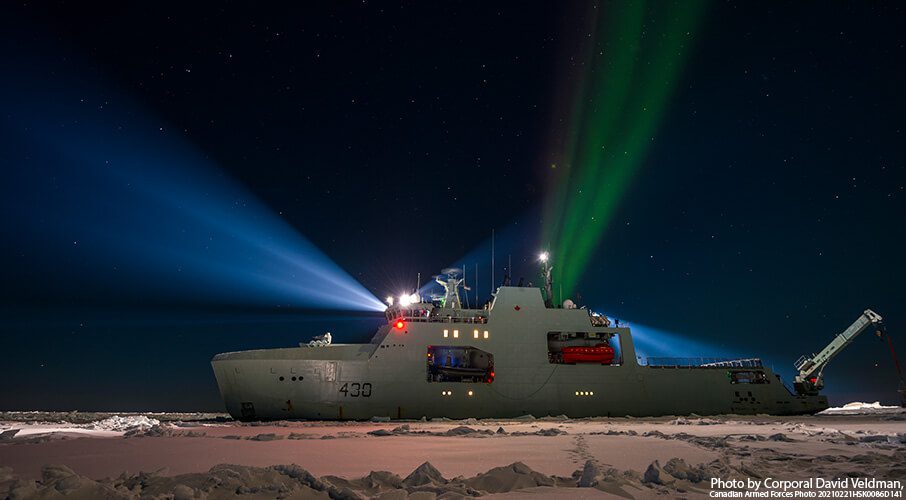This article originally appeared in the National Post.
By Heather Exner-Pirot, June 29, 2023
There was much to discuss at this week’s annual meeting of Nordic leaders in Iceland, from the short-lived rebellion in Russia and the war in Ukraine, to the ascension of Finland and Sweden to NATO, and the fate of the Arctic Council.
But if the meeting, to which Prime Minister Justin Trudeau had been invited as a special guest, was also intended to discuss Canada’s commitment to the region, the timing was pretty bad. Shortly after the PM was talking it up with his Nordic peers, it emerged that his government is shutting down its Arctic centre headquarters in Norway and moving it to Ottawa.
Housed in our embassy in Oslo, the Canadian International Arctic Centre was established in 2009 to build expertise and provide a sustained presence in the region. Even though Foreign Minister Mélanie Joly told CTV’s Question Period this past weekend that she wants to increase Canada’s influence on the world stage, we’re apparently closing one of the few tangible expressions of this ambition.
This is the latest symptom in Canada’s years-long atrophying of Arctic policy. We were once leaders in the space, advancing political devolution and land claims agreements with Inuit, territorial and First Nations stakeholders; initiating the Arctic Council in 1996; and promoting sustainable development and Indigenous rights in regional affairs. But this leadership turned out to be a 20th-century phenomenon.
The Harper Conservatives made the Arctic a priority, investing in our military capabilities in the region, but their diplomatic style was so abrasive that when Canada last chaired the Arctic Council, from 2013-15, the council’s other seven Arctic states and Indigenous members (unbelievably, in retrospect) condemned Canada for its ungracious treatment of Russia after it invaded Crimea in 2014, calling for a more co-operative approach.
Things have worsened under the Liberals. The Arctic and Northern Policy Framework, hurriedly launched the day before the writ was dropped for the 2019 federal election, epitomizes their modus operandi of making a plan to plan. It is not a strategy, and there is still no guidance on how we are approaching the new political, economic and security dynamics of the region post-Ukraine. We have committed funding to Norad modernization but expect to take into the late 2030s to finish the job. Our American and European allies, meantime, have to cajole us into meeting our NATO commitments in the face of pressures on its northern flank.
Contrast this to American foreign policy ascendance in the Arctic. After years of exhibiting little diplomatic interest in the region, the U.S. agreed to establishing the Arctic Council only after intense lobbying by Canada, and after extracting concessions that it would not discuss military security and would remain a consensus-based forum, as opposed to a treaty-based organization.
The U.S. secretary of state didn’t even attend the council’s biannual meetings of foreign ministers until 2011, but now Washington has eagerly taken the leadership mantle. While Canada is closing its Arctic centre, the U.S. plans to open a consulate inside the Arctic Circle, in Tromsø, Norway. The Biden administration released an ambitious Arctic strategy in October and will imminently release a plan to measure its progress. The Americans have an Arctic Executive Steering Committee to co-ordinate federal efforts, led by David Balton, who was Arctic Council chair from 2015-17 and who negotiated the 2021 Central Arctic Ocean fishing moratorium to prevent unregulated high seas fishing in the region.
They also have strong leadership from Alaska Senator Lisa Murkowski, perhaps the most knowledgeable politician from any country on Arctic affairs, especially now that Russian Foreign Minister Sergey Lavrov’s influence has diminished. And Alaskan Mike Sfraga, chair of the U.S. Arctic Research Commission, has been nominated for Washington’s new position of Ambassador-at-Large for the Arctic.
Since Mary Simon, now governor general, served as Canada’s first circumpolar affairs ambassador from 1994 to 2003 (a position discontinued in 2006), Ottawa has had no one of equivalent stature and experience working on Arctic foreign policy. Instead we have lumped the Arctic with Europe and Eurasian affairs under a single director general in Global Affairs Canada, ensuring the region will never get the attention or institutional memory it deserves and needs.
Canada should certainly be a substantial voice on such files as Ukraine, NATO and the Indo-Pacific, but the truth is we will always be a middle power in those areas. The Arctic, however, is one policy area where we are meant to lead.
Unfortunately everything we are doing now tells the world that we not only don’t know how to provide leadership in the Arctic anymore, we don’t want to.
Heather Exner-Pirot is a Senior Fellow at the Macdonald-Laurier Institute.






